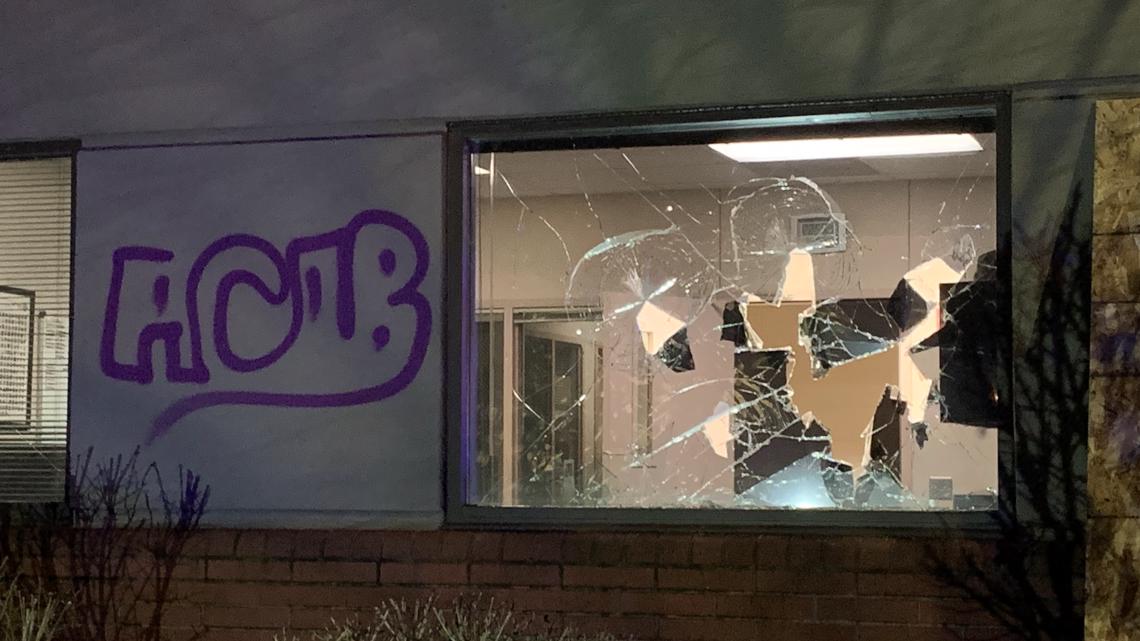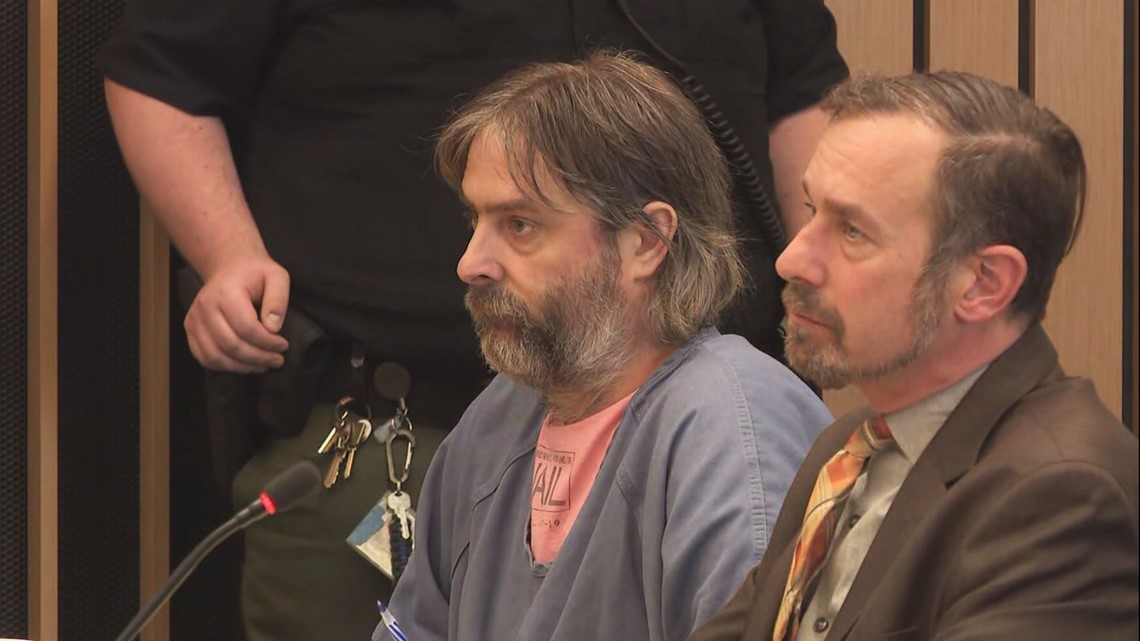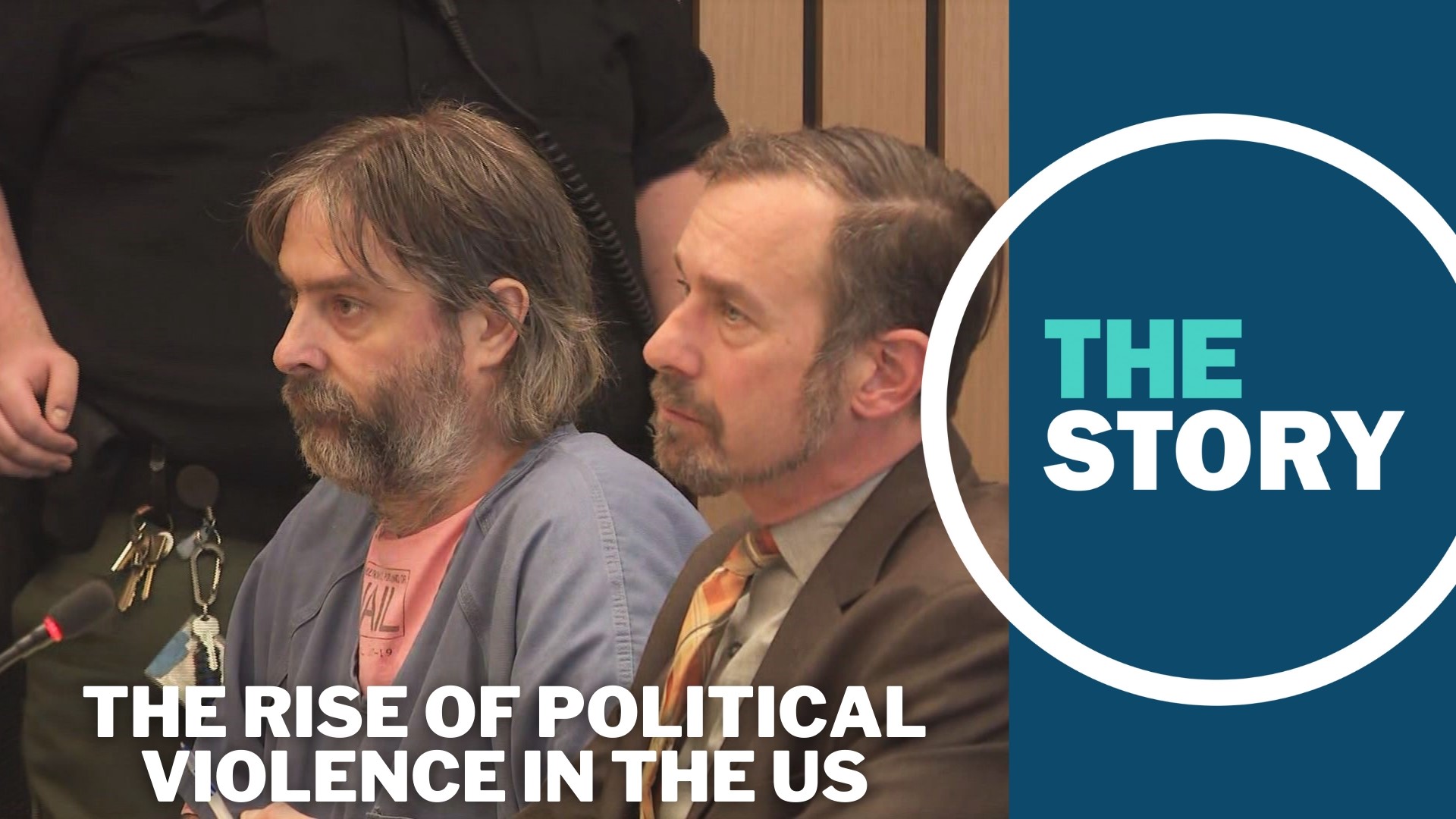PORTLAND, Ore. — Over the last few years, Portland has been in the national spotlight for its protests, riots, vandalism and clashes between politically-motivated groups. Most recently, the city featured prominently in an analysis by international news outfit Reuters examining political violence in the U.S.
In its special report, Reuters looked at incidents of political violence across the country that have occurred since the insurrection at the U.S. Capitol on January 6, 2021. The headline provides a succinct summary of their findings: "Political violence in polarized U.S. at its worst since 1970s."
The outlet documented 213 cases of what they determined to be political violence since January 6. Among those cases were 39 people killed in politically-motivated attacks — including June Knightly, 60, a Portland woman who provided traffic control during Black Lives Matter marches and was gunned down at Normandale Park in February 2022.
KGW spoke with Reuters investigative reporter Ned Parker, one of the authors of the article, to learn more about the disturbing rise in political violence.
"We started talking about doing this towards the end of last year, in part because of the hidden rhetoric and events at the time of the 2022 midterm elections," Parker said. "When the attack happened on Nancy Pelosi's house and the assailant struck and fractured Paul Pelosi's skull, that was a real alarming moment. And just because so much had happened since January 6 and the the nature of that event, we just started looking at, 'Well, how should we be looking at this phenomenon of political violence?'"


Reuters defined political violence as incidents linked to an election, a partisan political dispute or any premeditated acts driven by an ideology that could be identified. They did not include random hate crimes, but did include hate crimes that had a clear ideological standpoint. They did not include police violence.
Of the 213 cases Reuters identified since Jan. 6, 2021, 76 were individual acts of violence between people, 58 were among dueling groups at protests and other events, six were car rammings at public events and 73 were primarily confined to property destruction despite receiving the political violence label.
The reporters looked at the evidence of ideological underpinnings behind each incident and found that deadly violence overwhelmingly came from people who considered themselves on the right-wing side of the spectrum. In 13 deadly attacks that claimed the lives of 34 people, the attacker held right-wing political views. Only one deadly political attack could be tied to someone with a left-wing viewpoint.
An overwhelming amount of the property damage cases came from perpetrators with a left-wing political bent, Reuters found.


Politics or personal?
The shooting at Normandale Park that resulted in June Knightly's death was one case that Reuters featured in their story. A man who lived near the park, Benjamin Smith, harassed the group of demonstrators before pulling out a gun. He shot five people, killing Knightly and leaving others with life-altering injuries.
Earlier this year, Smith received a life sentence. After Smith's guilty plea, Knightly's wife said in public statements that she blamed the reactionary rhetoric against social justice for the murder.
"The Portland Police Bureau, as well as local and national politicians and pundits, have long characterized people associated with racial justice protests as threats to the peace, thereby giving potential vigilantes license to take violent action on their own behalf," Katherine Knapp said.
Smith's roommate told reporters that he'd become increasingly agitated about politics since the beginning of the COVID-19 pandemic. He'd post his grievances about liberals online, sometimes making racist and anti-Semitic remarks, throw tantrums and shout about shooting left-wing activists.


But in an email sent from jail, Smith told Reuters that the shooting was less about politics than people thought. He didn't elaborate.
That story was not an uncommon one. Though Reuters decided to categorize cases like Smith's as instances of political violence, they found that the motives often went beyond political ideology to include issues of mental health, family concerns or other personal issues.
"What proportion of it is truly political and what proportion of it is the personal?" Parker mused. "That's hard to say, but these acts of violence are really a mirror on different problems in our society."
Before the insurrection
Of course, Portland's recent history with violence in the political sphere predates January 6. Beyond the many cases of clashes and assaults involving left- and right-wing groups in the city dating back to at least 2016, there are several killings still shrouded in mystery.
In a few months, a trial is set to begin for Christopher Knipe, 47, the man accused of running down left-wing activist Sean Kealiher with his SUV in October of 2019. Portland police have repeatedly said that there is no reason to believe that 23-year-old Kealiher's killing was politically motivated, despite his involvement in anti-fascist activism, but it isn't clear what inspired the attack beyond witness statements suggesting that it was preceded by some sort of argument.
Then there's the case of Michael Reinoehl, a left-wing activist who shot and killed Patriot Prayer supporter Aaron "Jay" Danielson in downtown Portland after a right-wing rally in late August 2020. Reinohl was gunned down by law enforcement officers in Lacey, Wash. a few days later. Reinohl's estate recently filed a wrongful death lawsuit in federal court against the involved agencies.

